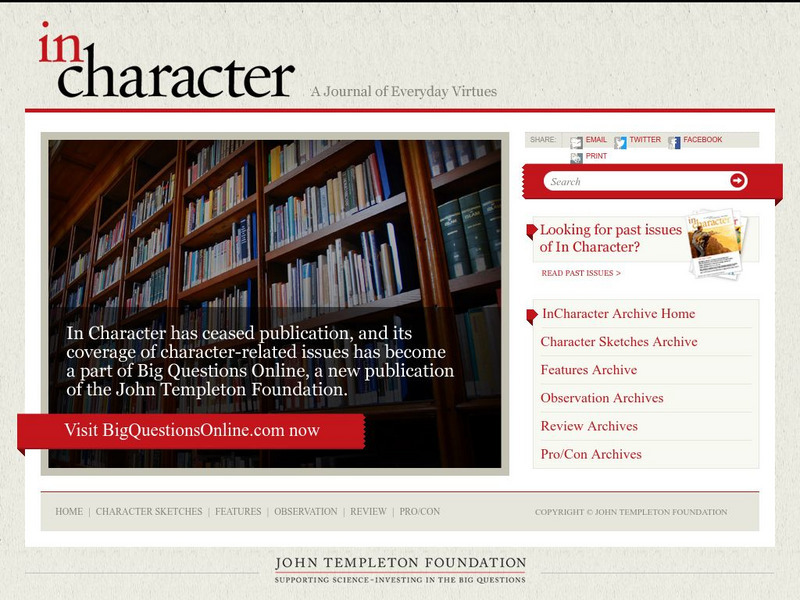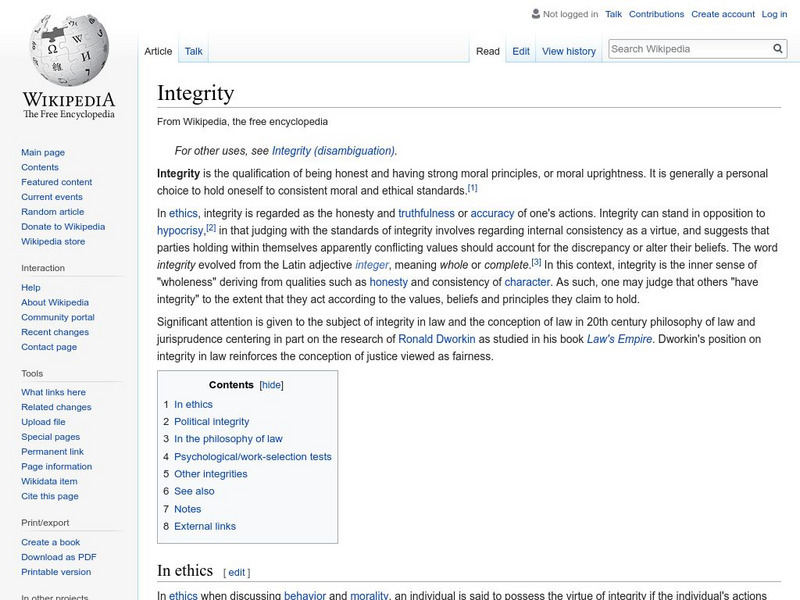Internet Encyclopedia of Philosophy
Internet Encyclopedia of Philosophy: Ethics
This site from the Internet Encyclopedia of Philosophy gives a general introduction to the field of philosophical ethics. Divines moral philosophy into three main topics: metaethics, normative ethics, and applied ethics, including links...
Internet Encyclopedia of Philosophy
Internet Encyclopedia of Philosophy: Virtue Ethics
Excellent, clearly written introduction to "virtue theories" of morality. Reviews the archetypical theories of Aristotle and Aquinas before turning to contemporary versions. Presents one possible philosophical critique of virtue theory...
Stanford University
Stanford Encyclopedia of Philosophy: Plato's Ethics
This encyclopedia entry provides an extensive discussion on Plato's Ethics and his attempt to create a philosophy of achieving the highest aim of moral thought and conduct.
Other
In Character: A Journal of Everyday Virtues
In Character is an online journal that examines a single virtue--compassion, creativity, purpose, modesty, loyalty, or thrift, for example--from different perspectives. Articles are written by noted scholars, journalists, and critics,...
Other
Santa Clara University: Markkula Center for Applied Ethics: Thinking Ethically
This article explores how to think "Ethically," and how to develop a framework for moral decision making. Content focuses on a variety of approaches that appeal to values in how to deal with moral issues. (Aug 1, 2015)
Wikimedia
Wikipedia: Integrity
In addition to providing a definition of "integrity," this article has information on the various ways in which integrity manifests in popular culture, law, and science. Contains several links to articles on related topics.
Philosophy Pages
Philosophy Pages: Aristotle (384 322 Bce)
The life, philosophy and metaphysics of Aristotle (384-322 BCE) are surveyed. The aim of Aristotle's logical treatises (known as the Organon) was to develop a universal method of reasoning by means of which it would be possible to learn...





